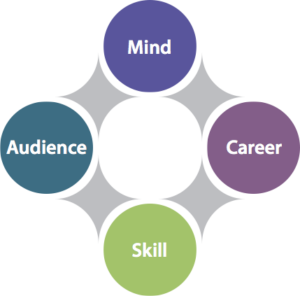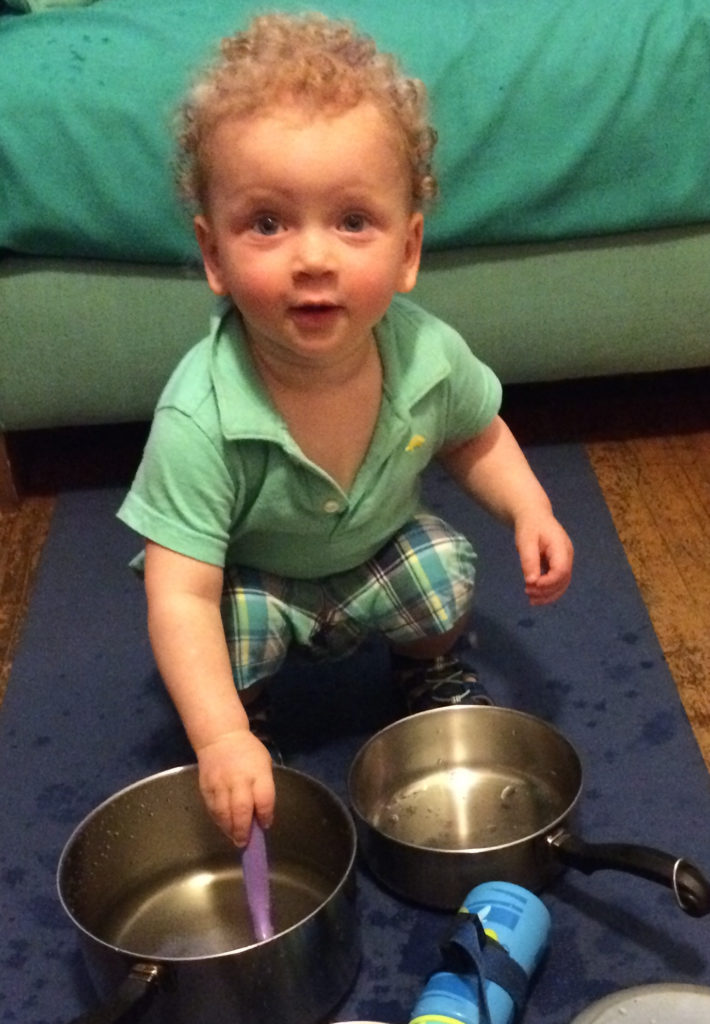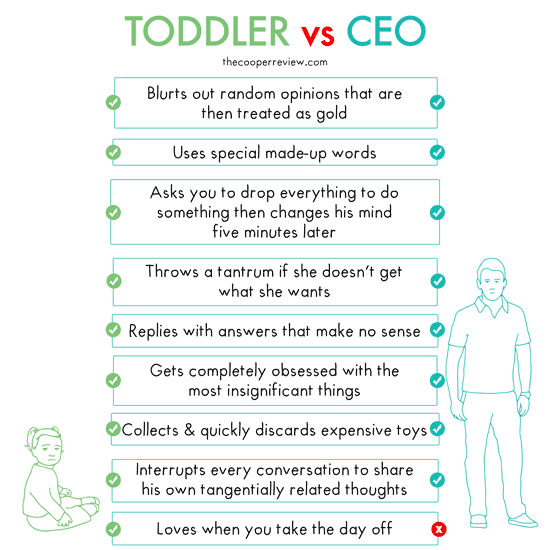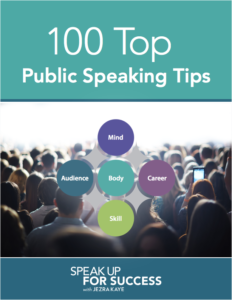 Whether you have kids… hang out with other people’s kids… or just remember your own childhood, most of us have some experience of talking to a toddler.
Whether you have kids… hang out with other people’s kids… or just remember your own childhood, most of us have some experience of talking to a toddler.
And, funny thing, sometimes speaking for business can feel very similar — for better and for worse!
Talking to a Toddler is Good Public Speaking
Think about what you actually do when you’re talking to a toddler.
These are some of the best practices that I try to use when communicating with two-year-olds:
- Make eye contact, even if you have to stoop down to do it.
- Use simple words, pronounced carefully, so you’re sure they understand.
- Speak with energy and animation, to hold their attention.
- Explain things from the beginning, and simplify the complexity of whatever you’re explaining.
- Make your “ask” or bottom line clear. (“No!”)
- Manage your own emotions. (For example, you probably don’t hit, scream, or bite back when your kid does those things — even if you’re sometimes tempted!)
- Repeat yourself as often as needed. (“In this house, we don’t bite. In this house, we don’t bite. In this house…”)
- Explain the consequences of unwanted behavior. (“If you bite, you get a time out.”)
- Check in often to see if you’ve actually reached agreement. (“No more biting, OK? OK?)
- Hold them accountable for what they’ve agreed to. (“OK, you have a time out.”)
- Reward good behavior or success with delight. (“You didn’t bite today! YAY!!!”)
Is there one thing on this list that wouldn’t work well in a business setting?

When Colleagues Frustrate You, Pretend You’re Talking to a Toddler
When the people you work with are acting childishly (or frustrating you for some other reason), that’s a particularly good time to dig deep for your Toddler Whispering skills.
Explaining things in a basic way… setting clear boundaries… describing consequences… staying calm… and checking in to see if what you’re saying has been understood — these are all invaluable techniques when you supervise others, have to manage up, or just need to cool things out with your peers.
So, with toddlers, you might say,
We don’t hit people. Hitting people is mean, and they won’t like you anymore. Don’t hit Johnny.
The business version of that is,
On my team, we don’t put our colleagues down. I would hate to see you miss out on a promotion because you roll your eyes when other people are speaking.
With a toddler, you might say,
If you don’t sit down in your stroller, we’re not going to the playground.
For business, that translates to,
If I don’t get those images by five o’clock, you won’t be featured in this month’s newsletter.
In general, toddler talk is a useful and powerful business skill. But, yes…
There Is a Negative Side to the Business/Toddler Comparison
This would be when you’re talking to an adult who acts like a toddler, yet has more status in the organization than you do.
People with great privilege don’t operate like the rest of us, and sometimes they can be… well, childish, as the cartoon below by Sarah Cooper of thecooperreview.com hilariously suggests.
When that’s true, there isn’t much you can do except try to stay out of the line of fire.
But with everyone else, it can be useful to pretend you’re talking to a toddler.
And if you ever decide to leave the business world, you’ll be ready for a career teaching pre-school!

 Buy 100 Top Public Speaking Tips: The Book!
Buy 100 Top Public Speaking Tips: The Book!
In 25 years of speaker coaching, I’ve helped my individual speaker coaching clients develop their strengths and skills to become authentic and effective communicators.
Along the way, I’ve developed tips for everything from small talk to speaking up in meetings, from managing fear to making an impact.
And now, I’ve shared it all in 100 Top Public Speaking Tips: The Book. This beautifully designed PDF booklet is searchable, clickable, and categorized, so that you can find what you need, instantly.
